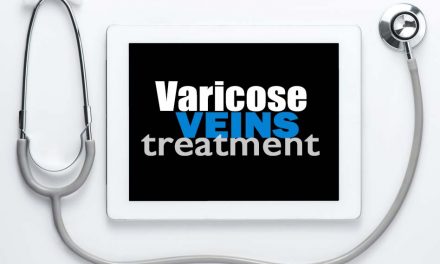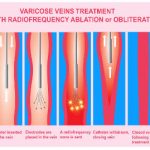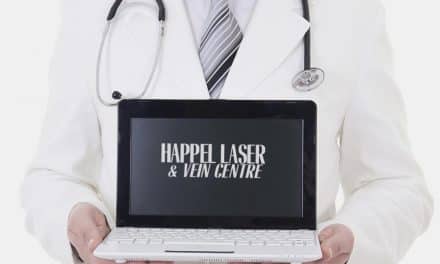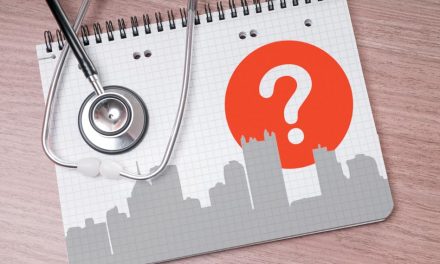
A Day in the Life of a Varicose Vein Doctor

A Varicose Vein Doctor’s Day
Woke up. Fell out of bed. Dragged a comb across my head…
I feel very fortunate being a varicose vein specialist here in Pittsburgh.
Most days start early. That is a throwback to my training as a vascular surgeon. Vascular surgeons are very early risers.
Vascular surgeons try to get to the hospital before the sun rises. After arriving at the hospital, usually the first thing that we do is see our patients who were admitted and had operations or procedures. Those early visits to check on patients before surgery starts are called “rounds”.
Surgeons makes hospital rounds by visiting their patients at the bedside either alone or with a team of physicians and students. Surgeons complete their rounds before their surgical operations begin. In most hospitals, the starting time in the O.R. is 7:30 or 8:00 AM.
Do Vein Doctors Make Rounds?
Not anymore.
Why?
Vein procedures are no longer done in the hospital.
Vein procedures are no longer even done in a surgery center.
Since cutting is no longer required, general anesthesia is no longer required either.
Therefore, vein treatments are now done in vein specialist’s offices.
Since patients leave the vein doctor’s office and walk home after the procedure, the idea of making rounds on vein patients has become obsolete.
I still rise early. Some things never change. Being a vascular surgeon is in my DNA.
What is a Typical Day for a Vein Doctor?
My usual working days are divided into office visit days and procedure days.
The number of procedure days per week changes depending on the season of the year. During the hot summer months, more people show up for consultations. That’s because at that time of the year, there is a cosmetic requirement to improve their appearance.
I spend a lot of time during the initial consultation explaining everything in great detail. I make sure that all of my patient’s questions are answered completely. I don’t want my patients to have any surprises. I hate surprises. That’s why I plan everything so carefully. My patients completely understand every step of the treatment plan, the risks, and the alternatives. The initial consultation is quite comprehensive and even exhaustive.

When the shorts and bathing suits come out, people call for a consultation or unsightly veins. On the other hand, when the veins hurt and are symptomatic, people call for their first consultation at all times of the year.
On procedure days, I perform laser ablations of saphenous veins, radiofrequency ablations of saphenous veins, phlebectomy surgeries (which are removal of the varicose veins through mini incisions made by a needle), and injections or sclerotherapy.
Varicose vein treatments often require a combination of these treatments depending on the extent and the size of the varicose veins. That’s because venous disease is complex and because venous anatomy and disease is quite variable. People who have been referred by friends or family sometimes don’t understand this. They often ask why they are having a different procedure from the person who recommended them.
Insurance companies dictate which procedures can be combined and when they can be performed. Even though I know that the patient can benefit by a certain combination of procedures, my hands are often tied.
It’s often very frustrating to know that insurance company’s financial constraints prevent me from designing an optimum care plan according to my vascular surgery training and expertise.
What are the Benefits of Modern Varicose Vein Treatments?
Most of the vein treatments that I perform give almost instant relief to patients with both medical and cosmetic concerns from their unwanted veins.
The office environment is more flexible than working at a hospital where I did most of my training. My daily schedule is often unpredictable.
A great advantage is that I don’t have to wait in line for other doctors to complete their work. When working at a hospital or surgery center, every surgeon knows all too well about the hours wasted waiting for operating time because other surgeons and the surgical staff rarely stay on time.
What are the Disadvantages of Modern Varicose Vein Treatments?
The most important thing that people with varicose veins must understand is that the office environment for the treatment of veins is totally unregulated. That means no inspections are required.
- How do you know if the vein center is safe or any good?
- How do you know if the vein doctor is trained and experienced in the treatment of venous disease?
- How do you know that they can be trusted?
- How about the staff, continuing medical education, sterility, and emergency equipment?
- Not all vein centers are the same. It’s a common misconception so I’ll say it again.
- Not all vein doctors are the same!
People come to be with botched varicose vein procedures and recurrences because their vein treatments were not done properly the first time. Botched vein jobs are difficult to fix. That is the same with any surgery. They often result in more needless recurrences in the future.
The Intersocietal Accreditation Commission inspects vein centers. Our vein center is the only one that has been inspected and accredited by the IAC in Pittsburgh. That is extremely important.
Most people are nice and respect our time and efforts. Nevertheless, as anyone in the service industry can tell you, a few characters can push my buttons.
However, in the vein world, the patient is always right. Over the past thirty years since I completed my vascular surgery training, I’ve met a lot of great people and wouldn’t trade my occupation with anybody.
Conclusion
Now you understand a little about a day in the life – of a vein specialist.
Remember, bulging veins in your legs are not normal. You must know they will not go away if you try to ignore them. They will definitely get worse. They will be more difficult and more painful to treat later.
If you can’t prevent varicose veins or keep them from getting bigger, what can you do?
Finding the best vein treatment is not difficult if you do a little research first. Reaching out to a qualified vein doctor with experience is the best way to start.
The barriers set up by insurance companies to cover your vein treatments are increasing at a dramatic rate. That’s because the number of varicose vein treatments have increased exponentially over the past few years.
Insurance companies are going to pay less in the future to treat your varicose veins. It is inevitable. If you’re suffering from varicose veins, don’t put it off any longer.
As the Beatles said, we’d love to turn you on … to our accredited and inspected vein center in Pittsburgh.
No other vein center in Pittsburgh has been inspected. Unbelievable but true.
To learn more about the latest, safest and most comfortable treatments available at the Kavic Laser & Vein Center. Give our office a call now to get your veins treated at 724-987-3220 or click here.









